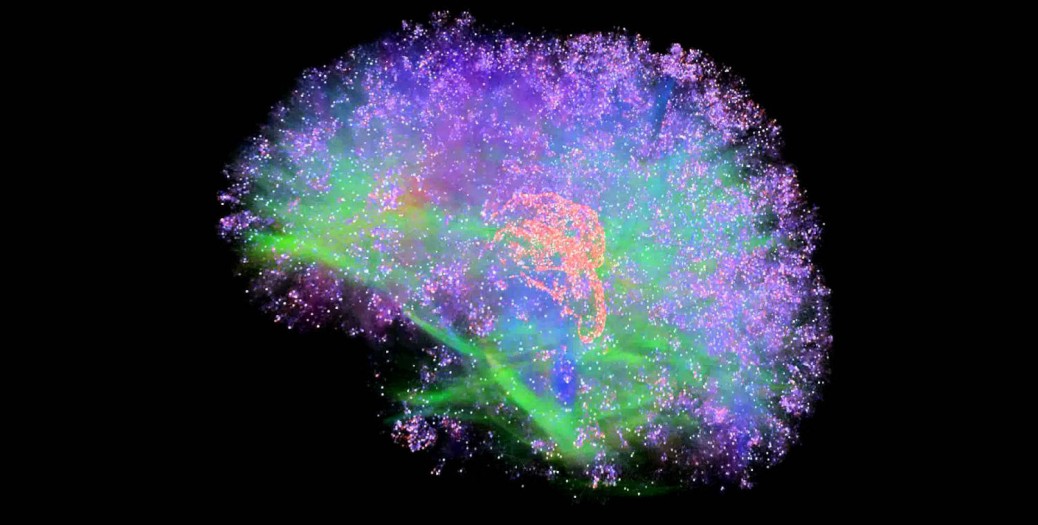Once there was a monk who specialized in the Buddhist precepts, and he kept to them all his life. Once when he was walking at night, he stepped on something. It made a squishing sound, and he imagined he had stepped on an egg-bearing frog.
This caused him no end of alarm and regret, in view of the Buddhist precept against taking life, and when he finally went to sleep that night he dreamed that hundreds of frogs came demanding his life.
The monk was terribly upset, but when morning came he looked and found that what he stepped on was an overripe eggplant. At that moment his feeling of uncertainty suddenly stopped, and for the first time he realized the meaning of the saying that there is no objective world. Then he finally knew how to practice.
Witness
Monk, when in the morning found that what he stepped on was an overripe eggplant, immediately he understood – Buddhist precept, there is no objective world. Hindu call it Maya, Illusion.
We can’t distinguish between what we see, feel or are creating.
There is no need to distinguish between thoughts, dreams and reality. If you try, you will feel more confused. There is no way to distinguish, because as far as the mind is concerned everything appears in the mind as a thought. It may be real, it may not be real; but the moment anything appears in the mind it appears in the form of thought.
You cannot distinguish, and there is no need. And don’t go on that journey, because that journey becomes a journey of thinking, and meditation is lost. Rather, on the contrary, remain centered in your witnessing. Don’t be worried by the objects in the mind; whatsoever they are, they are mind stuff. You simply remain more centered in your witnessing. Just be the watcher. Don’t try to distinguish. Whatsoever appears in the mind, just watch it. Watch it appearing, watch it being there, watch it disappearing.
Sooner or later, when you are really centered… and this can happen any moment. That moment remains always unpredictable. Whenever you feel centered the whole mind disappears: thought, dreams, reality – all. Suddenly you are in emptiness; there is no object for you. In the mind there is nothing – pure emptiness. Then open your eyes and look: whatsoever there is, is real.
As the Monk was practicing Buddhist precepts. Because of that irrespective of the thoughts which have created regret in him, he could gather courage in the morning to see where he stepped.
When you are a witness and the mind has completely dropped, then only it is known that which is – call it God, the real, the truth, or whatsoever you like to call it. Mind will never allow you to know the real. Mind is the disturbance. And if you get too much caught in it, then you will be trying to solve puzzles. You can go on solving and creating and solving and creating new ones, but it never comes to any end. Thinking is not going to lead you to reality; a no-thought awareness is. So don’t try to distinguish. Just watch, irrespective of what it is. Mind is unreal.
For example: if you are standing before a mirror, something appears in the mirror. It may be real; it may be a reflection of something real outside the mirror, but in the mirror it is just a reflection; it may not be real at all. You may be seeing your own dream reflected. You may be projecting. That too is unreal. Whatsoever appears in the mirror is unreal, because the mirror simply reflects. The mind is a mirror, it only reflects. Drop the mind, drop the mirror, and then see. Whatsoever there is, is real, because now the disturbing factor is no longer there.
My whole effort here is to help you to become witnesses.
Learning from the story No Objective World: Witness
Experience Learning
Let’s first understand the difference between The Witness And The Illusion.
How may one enter into that supreme truth, how may one know that supreme mystery which is so near and yet remains unknown; which is forever with us and yet is lost? How may we reach it, how has anyone ever reached it?
Let us first understand a few things about illusion. Illusion means to see as it is not. Truth means to see as it is. Whatsoever we see is illusion, because we involve ourselves in our seeing; our experience does not remain objective, it becomes subjective. Whatsoever is out there, it does not reach us as it is. Our mind distorts it, embellishes it, ornaments it, prunes it – making it bigger or smaller and changing it into many, many forms.
The biggest change and the deepest illusion is that we associate ourselves with everything, which in fact we are not associated with at all. As soon as we are associated the reality is lost and the dream projection starts appearing true. For example, we call a thing ‘mine’ – ‘my house’… the house which was there when we were not and which will still be there when we will be no more. Something that can be before I am, and will continue after I am not, which does not disappear with my disappearance – how can it be ‘mine’? If I die at this moment my house does not collapse or disappear, in fact it will not even know that I have died – then what kind of association can there be between myself and that house? What is the relationship? Tomorrow someone else will live in that same house and call it ‘mine’. Yesterday somebody else was living in it and he was calling it ‘mine’. Who knows how many people have stuck their ‘I’ on that house, and have passed away? But that ‘I’ never sticks onto the house, and that house does not belong to anybody; the house belongs to itself.
In this world everything belongs to it’s, own self. If we can understand this properly, we shall be able to shatter the illusions easily.
There is a piece of land. You call it ‘my field’, or ‘my garden’. If not today, tomorrow there will be claims advanced about the moon – America will say it is ’ours’, Russia will say it is ’ours’. Until yesterday the moon did not belong to anybody; it simply was. It simply belonged to itself. But now someone or other will claim the moon and sooner or later there will be struggles and confrontations. Up to now the sun belonged to itself, but tomorrow the sun may also be claimed.
Wherever man puts his feet he labels it with his ‘I’. Nature does not accept his labels, but other human beings have to, otherwise there will be confrontation. Others have to accept the labels because they want to put their own labels on things. So the house becomes somebody’s and the piece of land becomes somebody else’s. Why are we so impatiently eager to stick this label of ‘I’ somewhere? The eagerness is because the more places and things on which we stick this label, or make our signatures, the bigger the circle of ‘mine’ grows and the bigger the ‘I’ is developed within us.
‘I’ is as big as the number of things that carry its label. If someone says that he has one acre of land, how can his ‘I’ be as big as that of another person who says, “I have one thousand acres of land.”
With the expansion of the ‘mine’, the ‘I’ feels as if it is growing bigger. If the expanse of ‘mine’ decreases, the ‘I’ also shrinks. So every brick of ‘I’ is made up of ‘mine’. Thus the more ways I can say ‘mine’, the higher rises the palace of ‘I’. Hence our whole life we remain in only one race – how many things we can stick our labels on and say, “It is mine.” In doing so, while we continue to label things, one day we die and wherever we had put our labels, someone else begins to stick his labels on the things we had called ‘mine’.
Tags: Awareness ignorance Indubitable Mine Neti-Neti Witness










